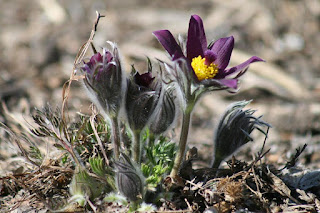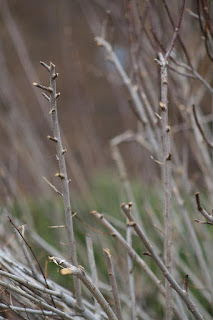Here's a bit from the memoir,
Morning Glory, recounting trips to the nursery with my Mom when I was a kid.
With no specific day, with no specific event marking it as extraordinary, I remember this from my childhood: tagging along with my mother to go to the nursery. Somewhere around the age of twelve or thirteen I did this several times over the summer, getting up “early” around nine or ten to tackle the manmade jungle among rows sheltered by half-translucent green plastic overhead.
Nurseries are strange places. The consumer itch for immediacy and razzle-dazzle meets the relatively naïve and simplistic beauty of plants becoming themselves. I’ve never known a good nursery to be modern and chic, either. By this I mean pulling into the parking lot and being wowed by clean, simplistic lines of design, the less is more strategy. In fact, I’ve never known a nursery that’s had a paved parking lot, or a parking lot that could accommodate more than a dozen or so cars. Even before you make it to the door—an arbor covered in clematis or ivy—the idea that your world is really not yours hits home. The pathways between the rows of wet-leafed plants from the morning watering are covered in thick mulch. When I went along with my mother on big shopping days, I had to pull the nursery-provided red-flyer along through the mulch. At first, being a skinny teenager wasn’t so bad—the wagon rolled along somewhat easily across the wood. Later, as the plants accumulated and as the black plastic containers grew larger, I’d find myself several rows over from my mother trying to diligently trace her snakelike path.
“Benj, where are you. C’mon up here so I can put these flowers in the cart.”
“I’m coming Mom.” She winces, turns not just her head but her whole body, and meets the cart halfway plopping the plants into the metal din of the cart.
“You’ve got to keep up with me. I need your help.” She didn’t smile, but turned back and faded into the turns of another row—I knew I’d never catch up with her. We’d have this conversation a few more times before the morning was out and eventually, planting in the garden, I’d either be forgiven and she’d let me do the planting, or I’d be rejected into the artificial air of my cool bedroom and video games.
The name of the garden center I remember most is, appropriately, The Garden Patch. It was a twenty to thirty minute drive because my mother didn’t like ones closer to our house. This nursery was off the side of a relatively busy, two lane county highway in the southern suburb of Shakopee. As cars pulled off into the dirt parking lot they had to make a considerable effort to slow down, so traffic behind became briefly bottle-necked. But approach the lot too fast and you might hit a pool of mud and get stuck, or knock out your shocks from the un-graded moon-like landscape.
This plant refectory reeked of dampness, protein, soil nutrients, stale un-circulated air and the people who worked the sticky brown cash register. Just inside the front arbor were two lines of twenty red-flyer wagons, lined up like shopping carts but tantalizingly playful. The first row of plants, small ornamental trees, pines and maples, shade plants, was relatively wide and open—inviting like a great hall or a mansion’s entryway. But once through, the rows split left and right and were so narrow no two wagons could pass by one another. My mother stood obliviously among them as I constantly had to angle out and make way for another poor child’s laborious route behind his mother.
But even though the load became progressively worse, there was a solemn joy and sense of purpose that emanated from the rows of artificially grown plants. My mother would thumb through stacks of annuals as if it were a recipe book, and I would patiently wait a few feet behind, if I’d caught up, fingering leaves of nearby plants, letting drips of water collect in the middle and slide down the tip, off into the mulch below. As Mom decided which plants would work in what amount of sunlight and in what soil and what time of year, I became mesmerized by the shades of green accented by the black plastic shadows: light green, dark green, silver green, frothy green, milky green, brilliant green, lizard green, vomit green, soft green, prickly green, green green… it was too much and not enough at once. Even the idea of all that life in such a small space is intoxicating and numbing.
How could all these plants thrive in this small space, and would they, like old lettuce in the grocery store, be tossed away if not bought before their roots outgrew their containers? When I walk through a forest or a dense park I always get dizzy—there’s too much to sense and observe that it becomes overwhelming. I can’t stop every few feet to observe a stone or branch because I’d never make it home in time for the next millennium; and if I stop for an hour or two just to take in the sense of one space and map it, really listen and look, I feel I’d miss 99.9% of what’s there.
These aisles, my mother’s patient discoveries, the weight of my cart, warm green light transfusing around it all, the thick smell of soil—a person might drown. Where is the car, the asphalt road, the brick and stucco buildings selling lawnmowers and chainsaws, the Minneapolis skyscrapers trumping the natural world around them a hundred fold. Where are the open, sterile spaces of man’s dominance that sets me free, the reliable highway arteries and overpasses and cloverleaves slapped down firm upon knocked down woods and open grasslands. In those nurseries I relished in the depth and intensity of life and becoming, of color and detail, I sank in the damp mulch and felt the bottoms of my feet warming in the insulation.
But just as much I craved the release of artificiality, as if among life and living I had held my breath until I passed through it—just as we’d do on the school bus when it passed through the Lowry tunnel downtown, underneath the Walker’s outdoor sculpture garden. Somewhere between the nursery, the car’s full trunk, and the plants huddled on the grass beside the garage, I exhaled and wanted to breathe in again, wanted to go back to the nursery. It was, in a strange way, thrilling—deprived of nature and over compensated with it. I couldn’t wait until early evening when we’d move through the garden slowly like maple shadows and find our way again.













.jpg)































